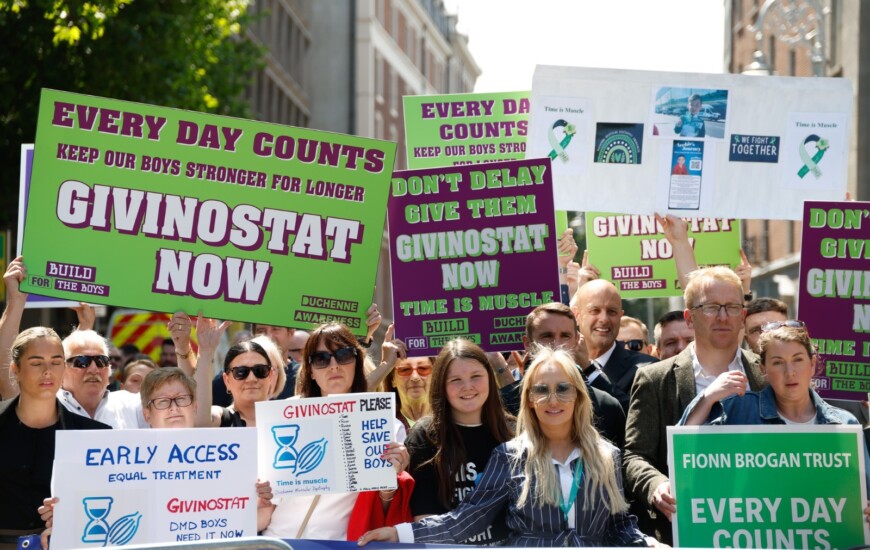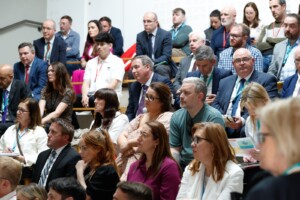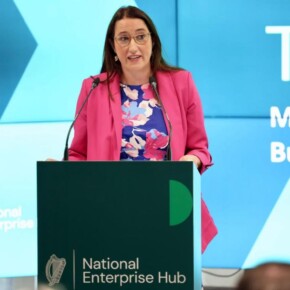Families plead for urgent access to Duchenne drug
Padraig Conlon 18 Jun 2025
A crowd gathered outside Leinster House last Wednesday (11th), united by a single plea: give our sons a fighting chance.
Led by Fianna Fáil Senator Teresa Costello, families affected by Duchenne Muscular Dystrophy (DMD) are calling on the Government to fast-track access to a newly-approved drug, Givinostat, which they say could dramatically improve, and extend, the lives of young boys living with the condition.
DMD is a progressive and devastating muscle-wasting disease that primarily affects boys, with symptoms typically emerging between the ages of one and three.
In Ireland today, approximately 110 people live with DMD, the vast majority of them children and teenagers.
By age 12, most children with DMD will need a wheelchair. Many will go on to develop heart and lung complications in their teens and twenties, making the disease life-limiting as well as debilitating.
For Senator Costello, the issue has a name and a face: seven-year-old Archie Ennis from Tallaght.
“I have seen the difficulties faced by a young boy called Archie in my own constituency,” she said outside Leinster House.
“It’s heartbreaking to see what his parents go through just to get him the care he needs.
“But now, there is hope. Givinostat has just received European approval.
“This could be a breakthrough for children like Archie.”

Diagnosed just before Christmas, Archie was delivered a brutal prognosis—wheelchair-bound by ten, with a life expectancy in his early thirties.
His mother, Una Ennis, has become a passionate advocate for the drug’s approval, driven by what she describes as a mother’s desperation to save her son.
“How do I explain to my little boy that Mammy couldn’t get him this medicine?” she said.
“We are devastated by Archie’s diagnosis. But now, we have a glimmer of hope with Givinostat.
“This could help him live longer, walk longer, and avoid the heart and lung complications that eventually claim so many boys with DMD.
“Time is muscle. Every day we wait, my son loses strength he’ll never get back.”
The demonstration was not just about Archie. It was about all the boys in Ireland living with this cruel disease—and about the families who live in constant fear of time running out.
Among those sharing their story was Eilish O’Sullivan from Donegal. She has two sons with DMD. Her eldest, now 21, has had access to Givinostat.
Her younger son has not.
“I’ve seen the difference the drug can make,” she said.
“The drug was only available in the UK at the time, and now he’s left behind.
“It’s like holding my son’s ability to walk in my hands.
“But now, that ability is in the hands of the Irish Government.”

Givinostat works by slowing the muscle damage caused by the disease, potentially extending the window of mobility, delaying major complications, and improving quality of life.
The drug has just received approval from the European Medicines Agency, but it has yet to be rolled out in Ireland.
Senator Costello is now urging the Government to act.
“Listening to hundreds of families’ stories is gut-wrenching,” she said.
“We need a multidisciplinary model of care—neurologists, physios, occupational therapists, respiratory and cardiac specialists all working together.
That’s the standard of care in other countries. Ireland is lagging behind.
“Ultimately time is muscle, and the time for Givinostat is now.”











